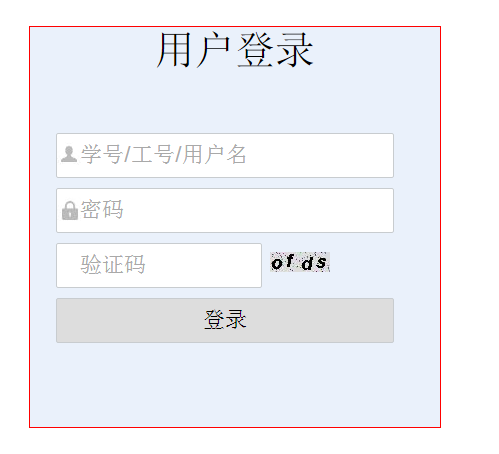Struts2中的图片验证码
1.Struts中建一个action
<action name="Code" class="LoginAction" method="code">
<result name="success" type="stream">
<param name="contentType">image/jpeg</param>
<param name="inputName">inputStream</param>
<param name="bufferSize">2048</param>
</result></action>
2.写Code.action
首先定义inputStream,并get,set
private ByteArrayInputStream inputStream;
public ByteArrayInputStream getInputStream() {
return inputStream;
}
public void setInputStream(ByteArrayInputStream inputStream) {
this.inputStream = inputStream;
}
然后Code.action代码如下
public String code() throws Exception {
int WIDTH = 60;
int HEIGHT = 20;
HttpServletResponse response = ServletActionContext.getResponse();
// 设置浏览器不要缓存此图片
response.setHeader("Pragma", "no-cache");
response.setHeader("Cache-Control", "no-cache");
response.setDateHeader("Expires", 0);
String str = "0123456789qwertyuiopasdfghjklzxcvbnm";
char[] rand = new char[4];
Random random = new Random();
for (int i = 0; i < 4; i++)
{
rand[i] = str.charAt(random.nextInt(36));
}
String rands =new String(rand);
BufferedImage image = new BufferedImage(WIDTH, HEIGHT,BufferedImage.TYPE_INT_RGB);
Graphics g = image.getGraphics();
// 产生图像
// 画背景
g.setColor(new Color(0xDCDCDC));
g.fillRect(0, 0, WIDTH, HEIGHT);
// 随机产生 120 个干扰点
for (int i = 0; i < 120; i++)
{
int x = (int) (Math.random() * WIDTH);
int y = (int) (Math.random() * HEIGHT);
int red = (int) (Math.random() * 255);
int green = (int) (Math.random() * 255);
int blue = (int) (Math.random() * 255);
g.setColor(new Color(red, green, blue));
g.drawOval(x, y, 1, 0);
}
g.setColor(Color.BLACK);
g.setFont(new Font(null, Font.ITALIC | Font.BOLD, 18));
// 在不同的高度上输出验证码的每个字符
g.drawString("" + rands.charAt(0), 1, 17);
g.drawString("" + rands.charAt(1), 16, 15);
g.drawString("" + rands.charAt(2), 31, 18);
g.drawString("" + rands.charAt(3), 46, 16);
System.out.println(rands);
// 结束图像 的绘制 过程, 完成图像
g.dispose();
ByteArrayOutputStream outputStream = new ByteArrayOutputStream();
ImageIO.write(image, "jpeg", outputStream);
ByteArrayInputStream input = new ByteArrayInputStream(outputStream.toByteArray());
this.setInputStream(input);
HttpSession session = ServletActionContext.getRequest().getSession();
session.setAttribute("checkCode", rands);
input.close();
outputStream.close();
return SUCCESS;
}
3.jsp中调用
<form id="form" action="Login.action" method="post">
<table border=0 cellpadding="4">
<tr><td><input type="text" name="username" placeholder="学号/工号/用户名" size="22" style="background-image: url(img/user.JPG);"><br></td></tr>
<tr><td><input type="password" name="password" placeholder="密码" size="22" style="background-image: url(img/password.JPG);"><br></td></tr>
<tr><td>
<input type="text" placeholder="验证码" name="checkCode" size="10"/>
<img alt="" src="Code.action" onclick="this.src='Code.action?'+ Math.random();" title="点击图片刷新验证码">
</td> </tr>
<tr><td><input type="submit" class="btnCheck" value="登录" onclick="validate()" style="width:100%;"></button></td>
</tr>
</table>
</form>
4.在另一个action中验证
HttpSession session = ServletActionContext.getRequest().getSession();
String checkCode2 = (String)session.getAttribute("checkCode");
System.out.println(checkCode+"aaa"+checkCode2);
if(!checkCode.equals(checkCode2))
{
return "chekCodeerror";
}
5.结果截图

智能推荐
注意!
本站转载的文章为个人学习借鉴使用,本站对版权不负任何法律责任。如果侵犯了您的隐私权益,请联系我们删除。
